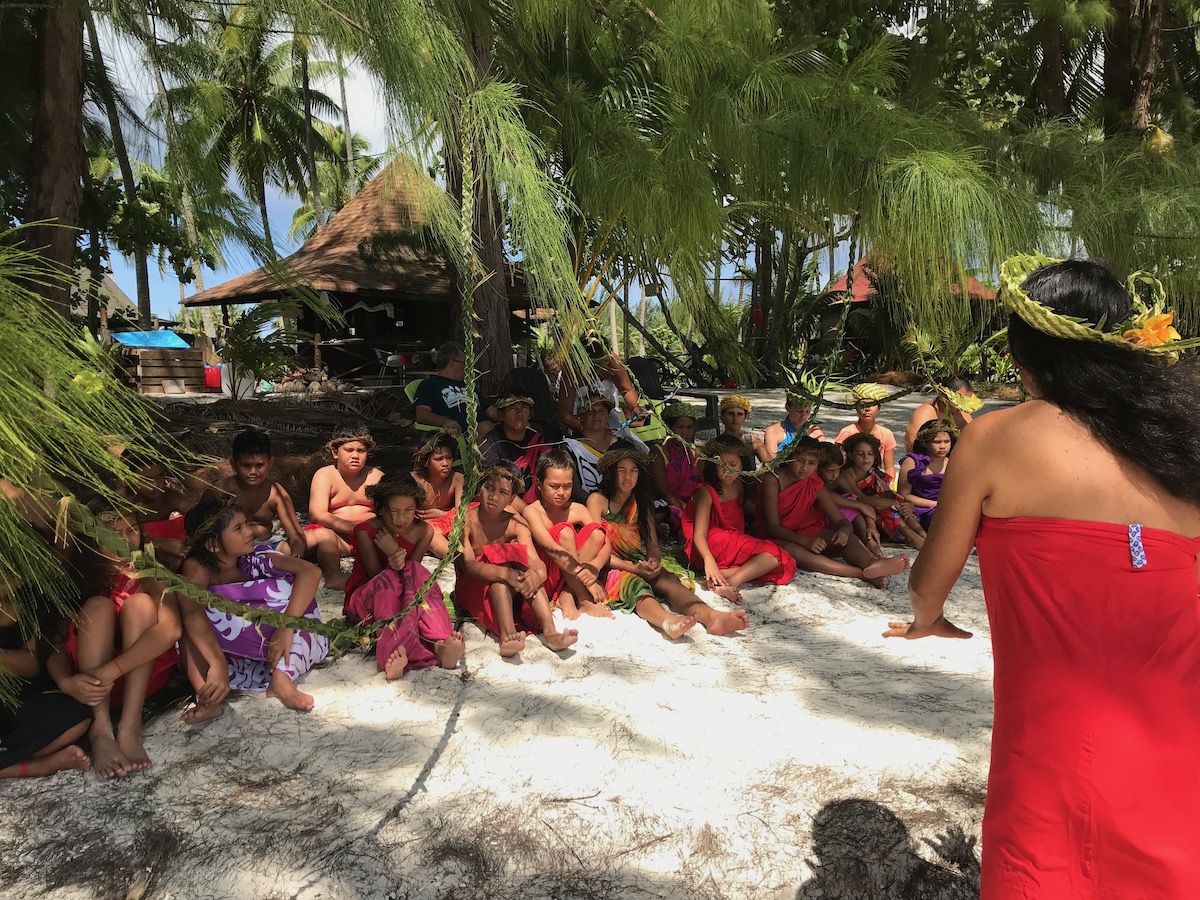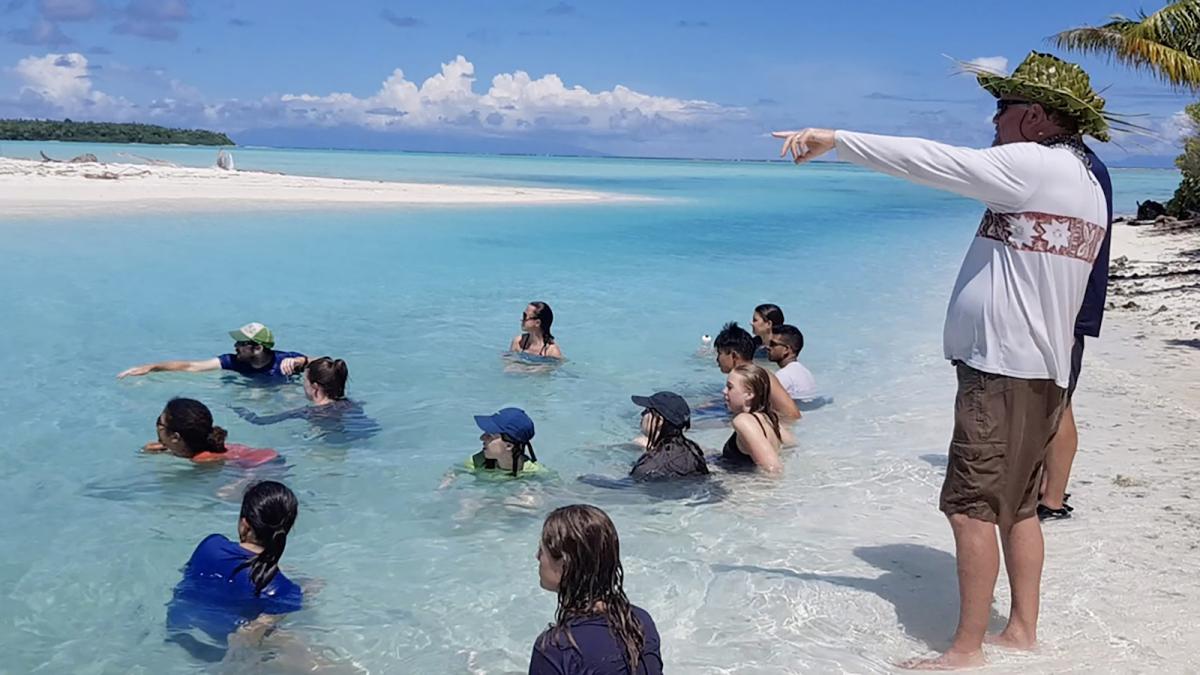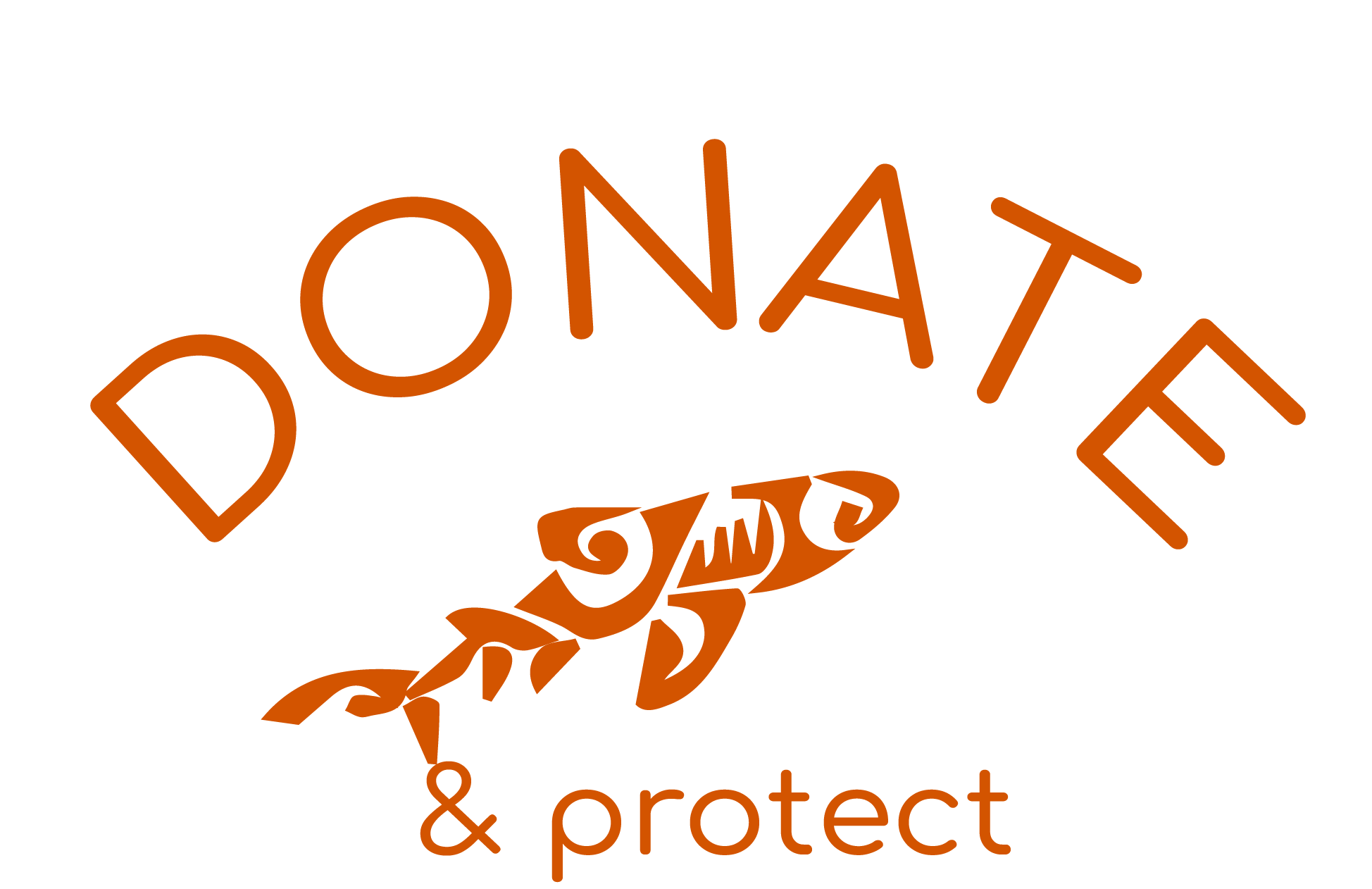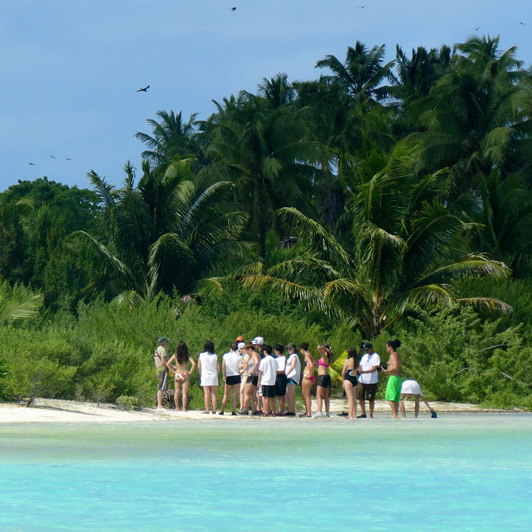As part of Tetiaroa Society’s commitment to Pacific island conservation and the communities that they support, our Education Program strives to teach local and foreign students about the natural and cultural heritage of the region and how to live sustainably in our island/ocean world.
Local Program
Tetiaroa Society works closely with the French Polynesia Education Department to develop and carry out field course on Tetiaroa for students ages 8 to 18. These courses are generally 4-5 days on Tetiaroa for up to 30 students and they include scientific information and traditional knowledge on the flora and fauna of Tetiaroa, the cultural history of the island, and both traditional and modern sustainable living practices.
Tetiaroa Society also works with the Université de la Polynésie française to host internships and short field programs for university students over a variety of academic disciplines.

Hinano captivates students and brings history and culture alive.

Frank introducing the wonders of the atoll to visiting students from the Lakeside School.
International Students
Tetiaroa Society hosts field courses for student from outside of French Polynesia. Over the past several years we have had high school, Community College, and University groups from the US visit for up to two weeks to do field courses. Before the COVID pandemic this program was rapidly expanding and we expect it to resume this in coming years.







